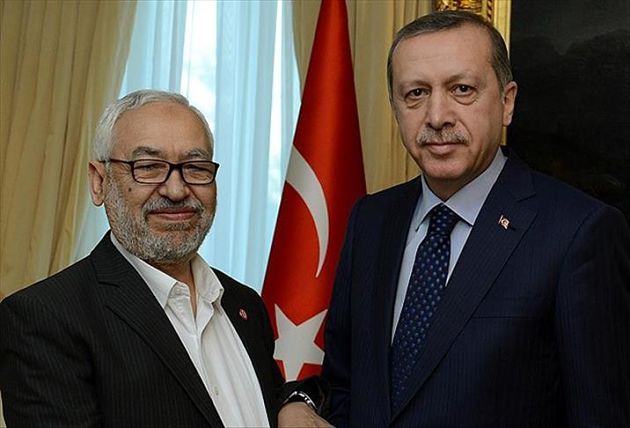The events unfolding in Tunisia once again raise questions for politically minded Muslims about the politics of Islamic forces operating within a system that claims to be democratic. This question is not easy, and here’s why.
It is clear that any force with even a hint of an Islamic agenda will be seen as alien not only by the indigenous holders of the «democratic franchise» but also by its global wielders, no matter how much they declare their commitment to democratic principles and secularism. We saw this in 2016, when those who call themselves democrats and liberals applauded the armed attempt to overthrow the democratically elected government in Turkey, which was trying (unsuccessfully) to bring its country into the EU. We have seen this before, when the same people behaved in the same way during revolutions in Egypt, Algeria and other places. There should be no illusions about this, and much has been written and said about why this is happening…
It is more difficult to determine what conclusions should be drawn from this. The categorical conclusion and approach of some Islamic groups, which is not even to try to «play by their rules», but to «establish Sharia», is as understandable as it is ineffective in many cases. This could be seen in Algeria, when such a conclusion from the coup only strengthened the junta and not only crushed the Islamic forces, but also completely discredited them for years to come. It could also be seen in Syria, where the separation of the supporters of the «pure Islamic banner» from the «tyrants of democracy and nationalism» led first to the division of the Sunni forces and then to the capture of this «pure banner» by the most destructive forces, which not only suffered defeat but also discredited it. The only reverse example is Afghanistan, but even Abu Musab al-Suri explained why this country stands alone in the history of partisan movements (landscape, people, location, etc.).
The example of Tunisia was interesting in this sense as an intermediate between two poles of Islamic democratic politics — the unsuccessful example of Egypt and the successful (so far) example of Turkey. In the first case, the democratically elected president Mohammad Morsi was simply forced out of power and practically killed in prison two years after his election victory. In the second case, Recep Tayyip Erdoğan, after winning the parliamentary elections following previous bans and arrests, skillfully neutralized one opponent after another by entering into various situational coalitions, which allowed him to successfully prevent the Egyptian scenario in Turkey in 2016. The Tunisian pro-Islamic party «Ennahda» chose a middle path. Being one of the leading forces of the anti-dictatorship revolution and having a chance to fight for power in 2011, like their colleagues in Egypt, they preferred a more moderate option of coalition formation, agreeing to the position of prime minister and leaving the presidency to their secular allies. In 2014, a year after the coup in Egypt, facing a decline in popularity due to their government’s policies, they chose not to cling to power at all costs, but to go into opposition after the elections.
In opposition, «Ennahda» strengthened its position, taking advantage of the unpopularity of its opponents’ policies, and was well prepared for the elections, which it won in 2019, after which its leader, Rachid Ghannouchi, became speaker of parliament.
It seemed that this example demonstrated the benefits of political flexibility in playing by the rules of the democratic system, even compared to Egypt, not to mention Syria. But now, after a decade, we are witnessing an attempt to implement the Egyptian scenario in Tunisia, destroying the fruits of this flexibility and the country’s development along the path that the «civilized world» apparently wants it to follow.
How will the «civilized world» behave in this situation and this time? It is not surprising that the Russian Foreign Ministry in its recent statement said that the dictatorial President Kais Saied «acted in accordance with his constitutional powers» by dissolving the parliament. After all, everyone is already accustomed to the fact that the Kremlin is the most open supporter of all dictatorial anti-Islamic regimes in the Islamic world. In this context, the European Union has at least called for the resumption of parliamentary activity, which the president certainly has no power to stop, and for the crisis to be resolved through negotiations. Ankara also condemned the anti-democratic actions and called for a return to democracy.
Further developments will depend on how events unfold in Tunisia itself. Each side has made its move-the dictatorial president announced the suspension of the parliament, and Ennahda and the parliament refused to recognize it and called for resistance. This has not yet escalated into open clashes, but that doesn’t mean they won’t happen. According to the laws of the genre, contradictions as tightly tied as these must be resolved, and the knot will either be untied through negotiations or severed by force. In the latter case, there are three possible outcomes: 1) the Egyptian scenario, where the junta wins and establishes a dictatorship, 2) the Turkish scenario, where the junta loses and is neutralized, 3) the Syrian scenario, where a civil war begins.
In this situation, the Tunisian people can only hope for the Turkish scenario, or at least for a negotiated solution to the crisis. Speaking of Turkey, not only can its example influence Tunisia, but also vice versa. Especially with the upcoming elections and the declining popularity of the ruling Islamist forces among Turkish voters, many pointed to Tunisia as a positive example that if you lose elections, you can peacefully go into opposition without fearing for your future. However, the organizers and sponsors of the Tunisian coup seem to be trying to convince the Turkish ruling party otherwise — in the Muslim world, they say, if you go peacefully, you will be killed…

